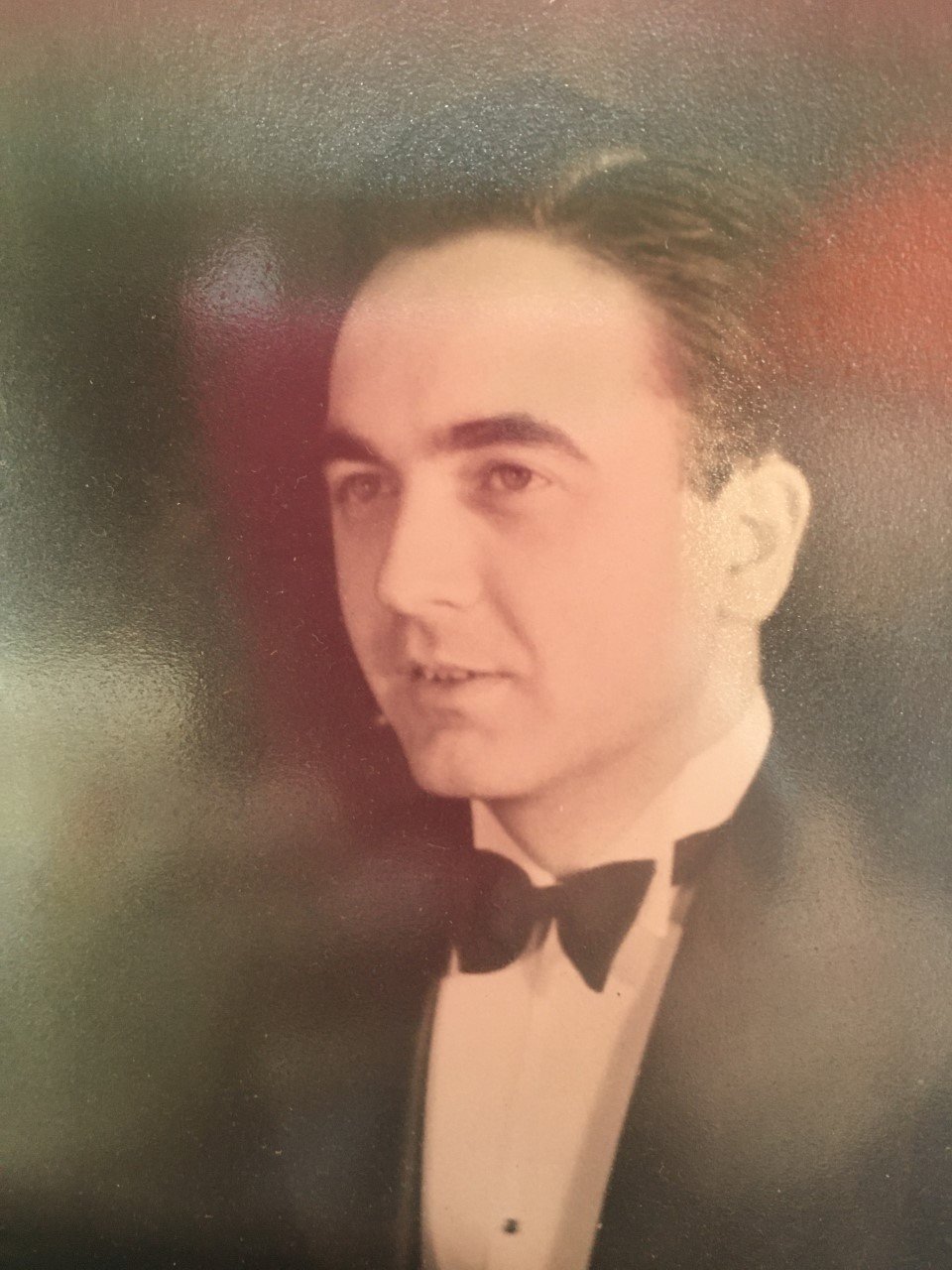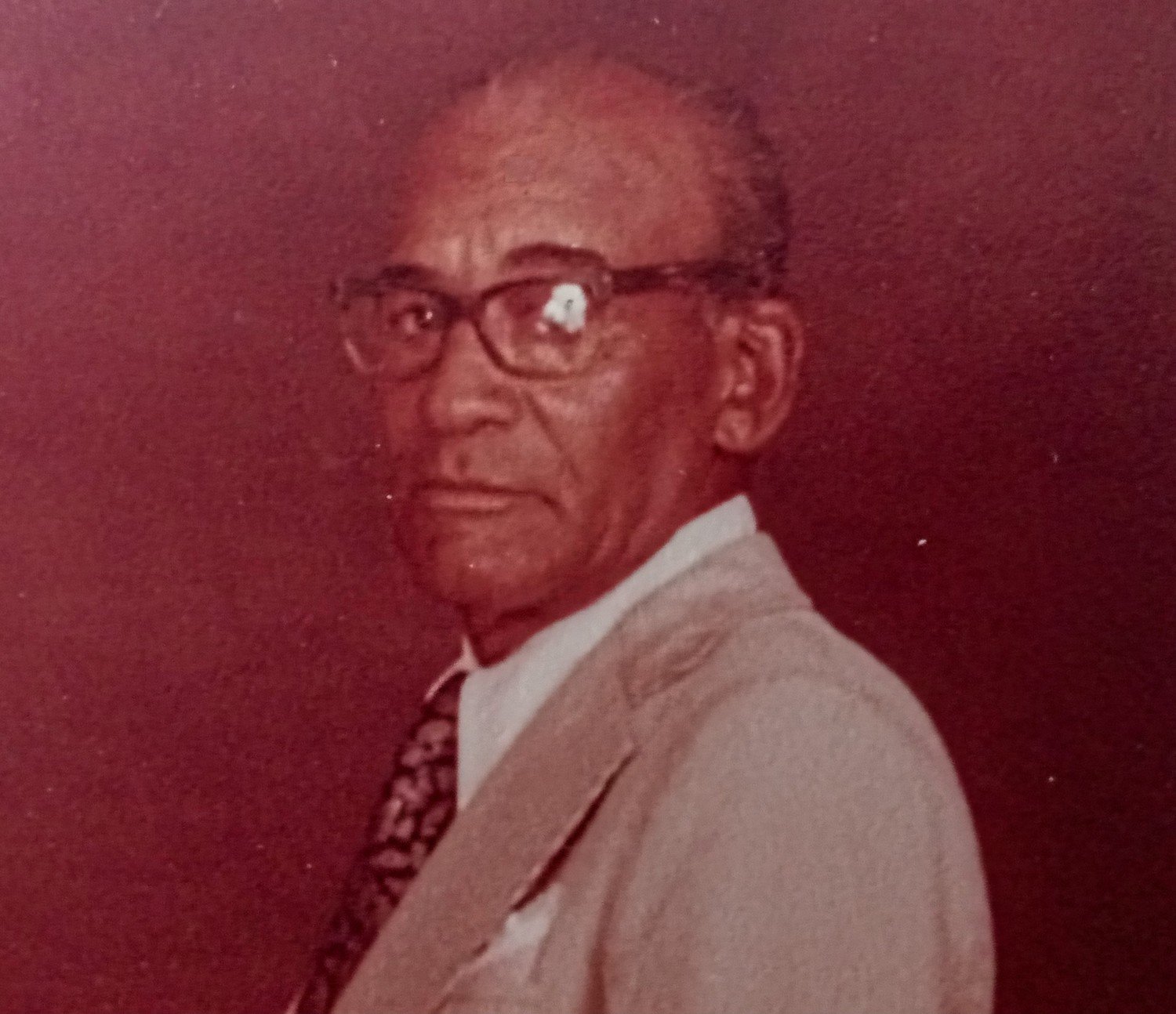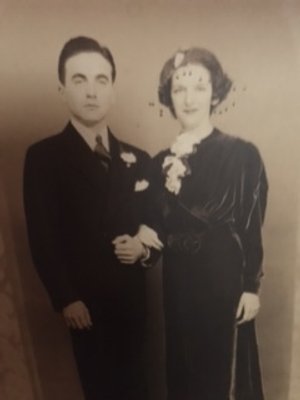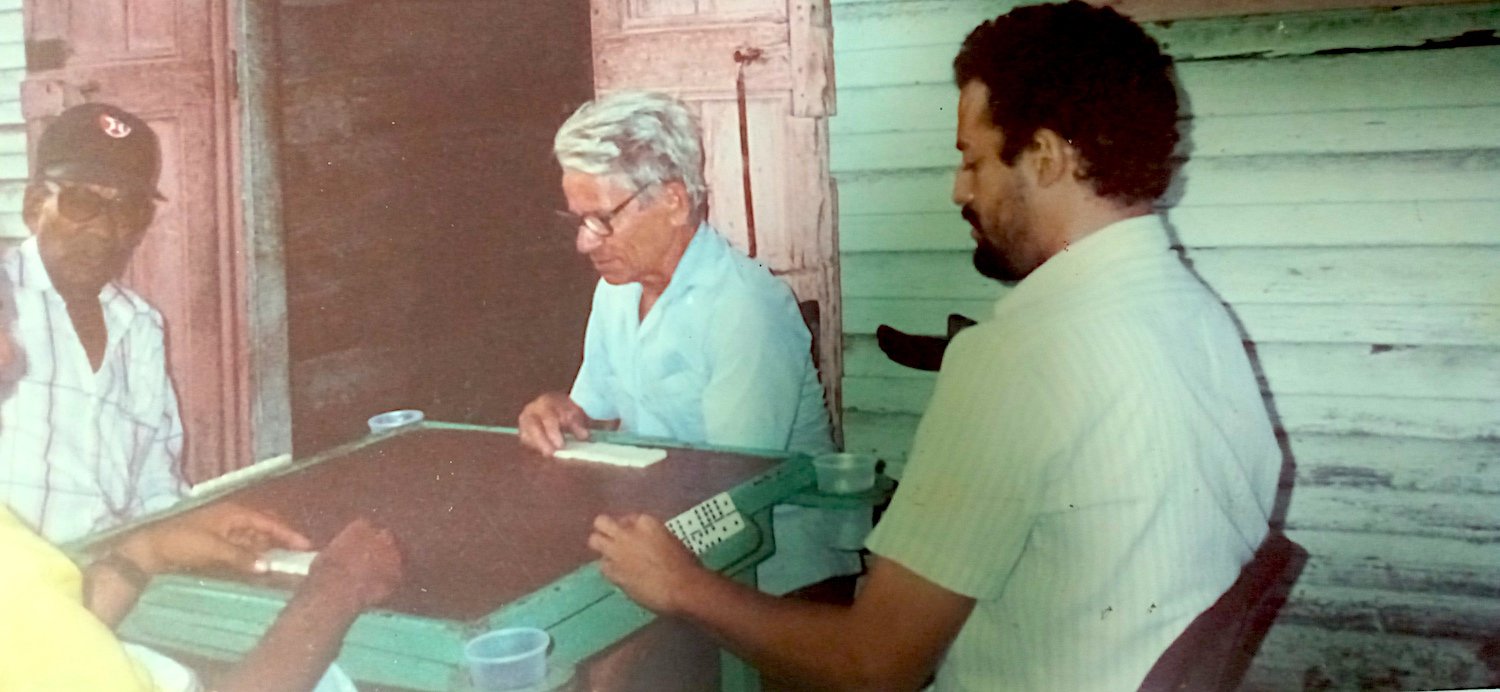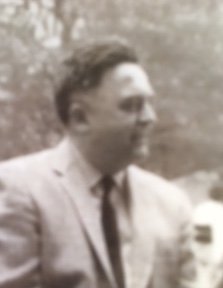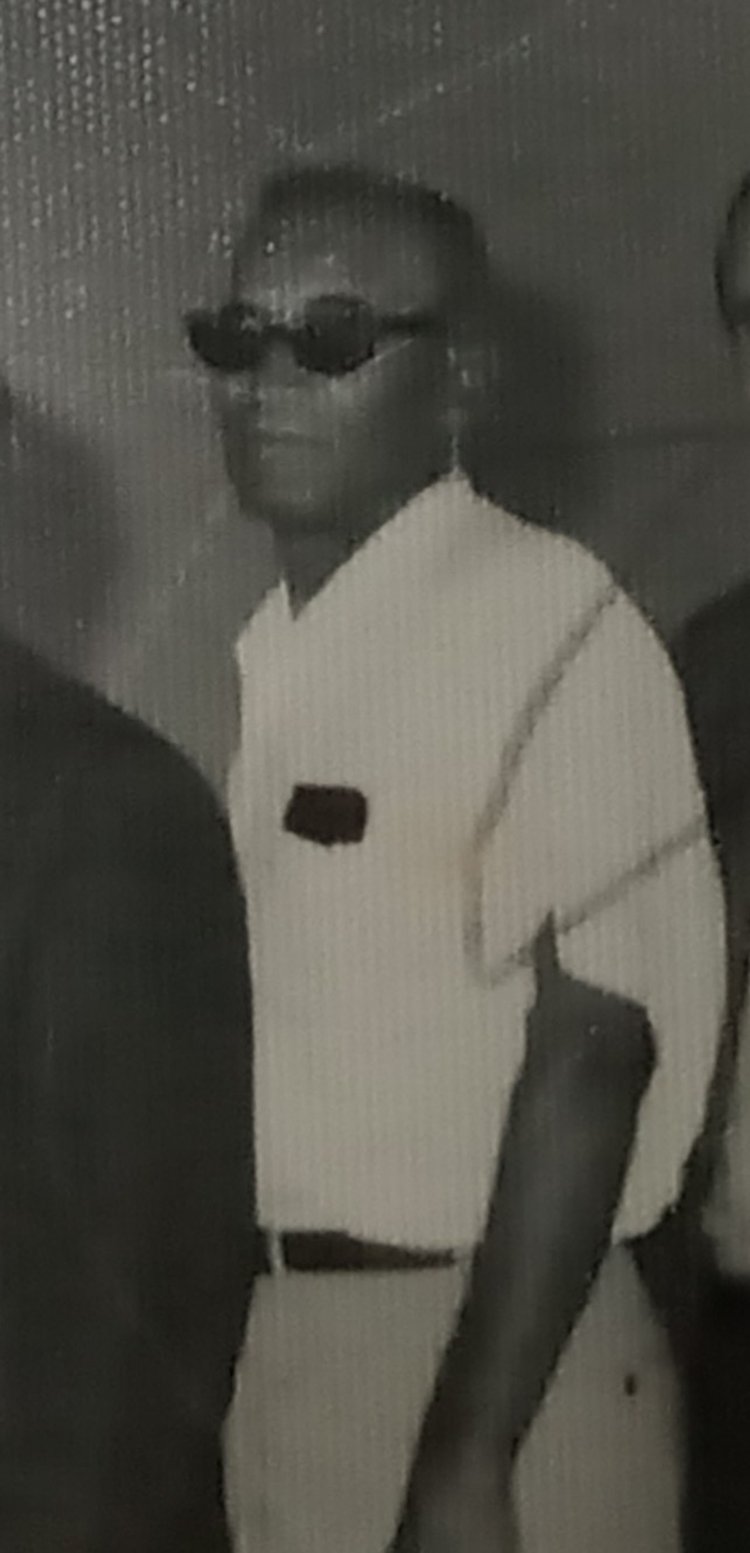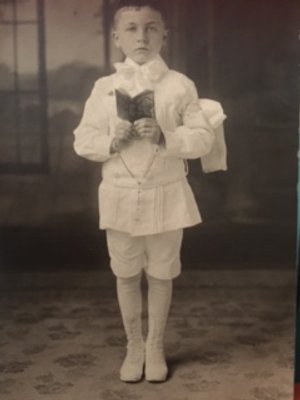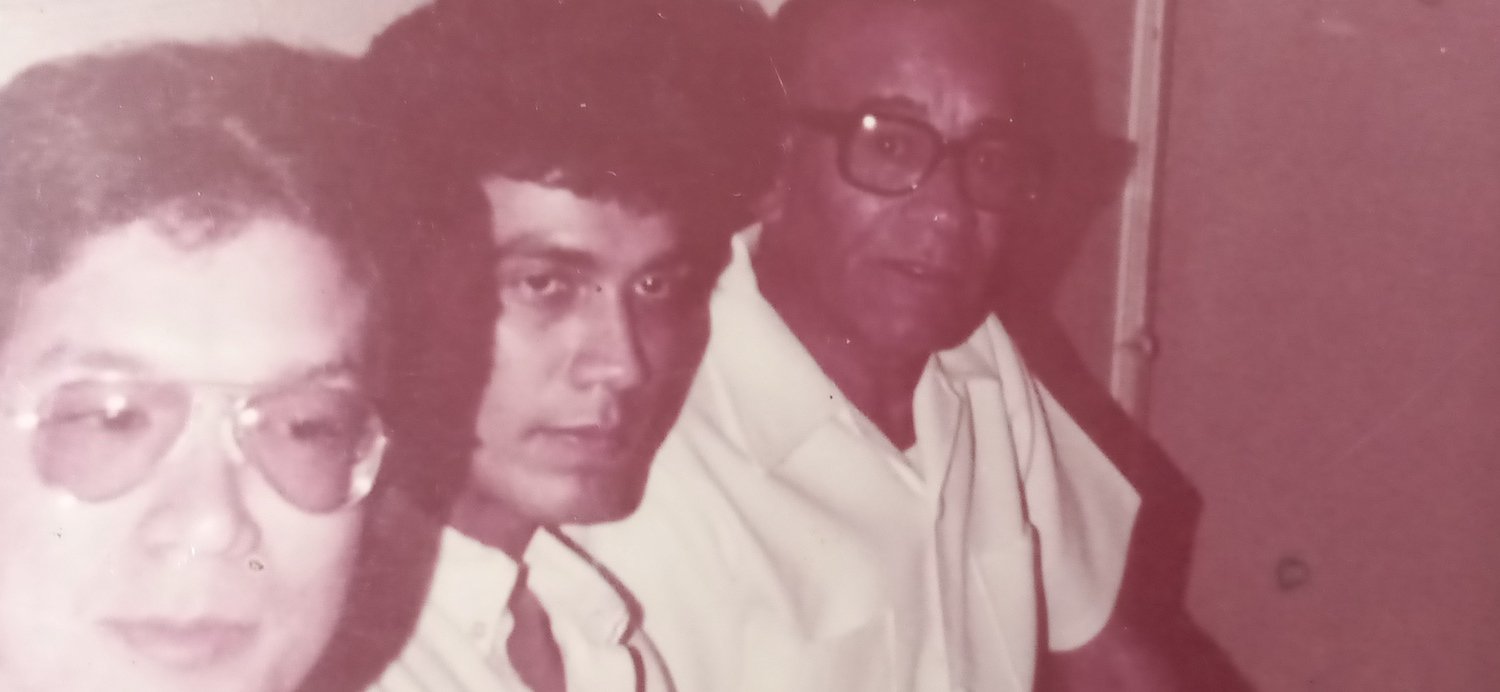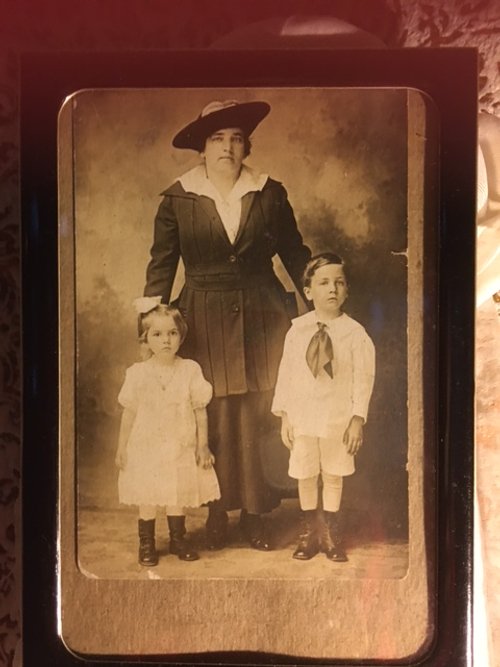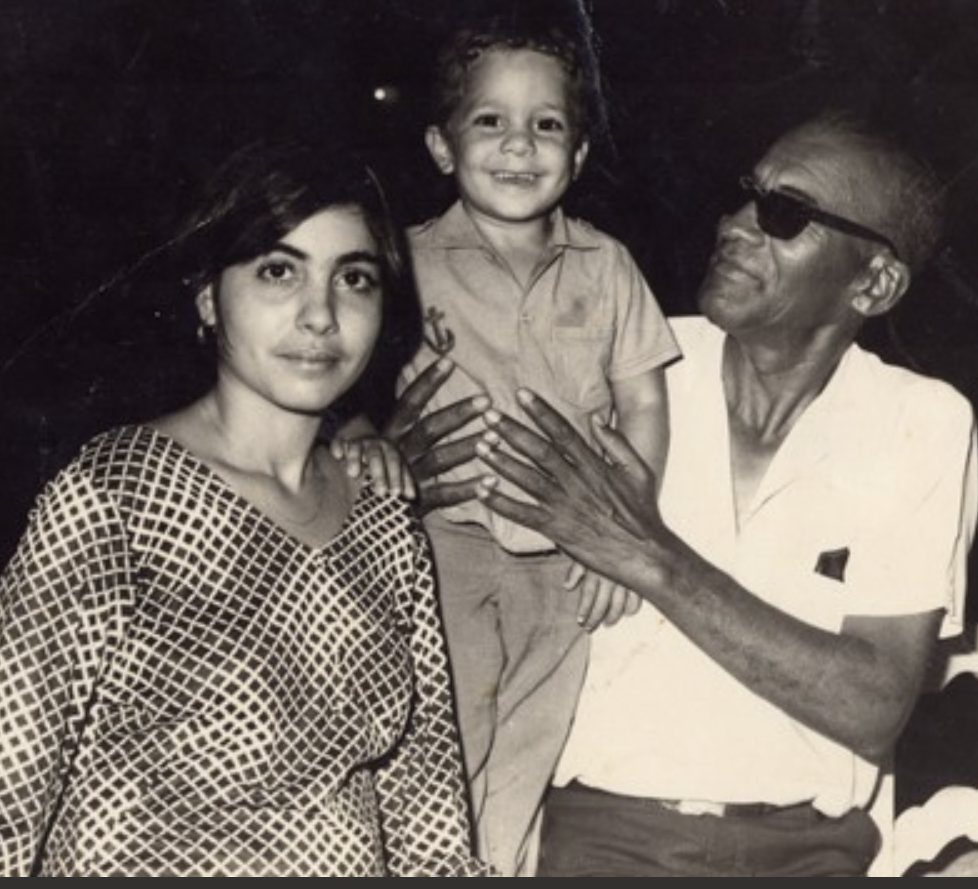DAD
Linda Mary Montano and Nicolás Dumit Estévez Raful
FROM LINDA MARY MONTANO: NICOLÁS, we talked about your father in our last phone conversation. I was interested in the fact that BOTH of our fathers suffered from racism and it interests me that this ancestral heritage we both share has influenced our art and life. Both of our fathers were VERY INCREDIBLE and we both loved our fathers. Let’s interview each other about them. I will send you two questions and I will answer the same questions. Let our fathers be honored by not only ourselves but by our friends who read this wonderful homage which you have so beautifully and generously presented. Thank you my art brother. Linda
Briefly tell your father’s story
Linda Mary Montano: HENRY JOSEPH MONTANO was born in Saugerties NY. on December 8, 1912. His mother Maria Ciocco and father Louis Montano migrated from Guardialfiera, Italy in the late 1800s. Grandpa came first and worked in shoe repair at a relative’s shop in Hudson, NY, until he payed off his boat fare. Then he came to the other side of the Hudson River, tried Coxsackie but settled in Saugerties, 45 minutes south where he opened a shoe store. Dad was their third child and photos of him reveal an incredibly handsome and strong minded person with a movie star aura. He maintained those strong features and a magnetic charisma his entire life but it was an aura that was monk-like, that is, his level of deep inner quiet and DEVOTION were palpable. Around my dad was a kind of holiness which every person who came to his shoe store personally experienced because the store was more like a healing center, a Church where an attitude of professional service to all customers was consistent and constant. When you went to MONTANO’s Shoe Store you were somewhat entering a healing center-Church and my Dad was the Cardinal presiding.
After high school Dad’s wish was to become a dentist but the person he asked for money did not loan the money to him so when his father asked him to help him at Grandpa’s store, Dad honored his father and agreed.
Dad was also a musician and played drums and sang in a band with his brothers and eventually chose trumpet as his instrument. Mom sang in Dad’s band.
Dad’s siblings were Joe, Louis, Dad, Ula , Eddie, and others who died as infants. During the 1918 pandemic Ula died when she was 3, Dad was 6 years old. And the story is that Dad carried a “guilt” feeling that he had killed Ula which indicates that he had most likely been sick during the flu and thought he had given it to her, a typical misconception which children tragically carry. Shortly before he died as I was caregiving him, and I luckily was able to explain to him the truth of his no-fault and this was a memorable healing situation in our history.
Dad the musician co-organized a drum and bugle corps and they played in local parades for 14 years making a historic appearance at the SAINT PATRICKS DAY PARADE in NYC. ( See THE FATHER HARTY DRUM CORPS on YouTube.) My memories of him listening to trumpet records, big band, Ella, and initiating me into SOUND as a language deeper than words will always be something I treasure deeply because we all communicated in our home via sonic waves, not words. Sound without sentences were our practice because Dad did not use verbal language......his methodology was his presence and vibrational frequency and I often have memories that we grew up in a monastery, a holy one.
Dad really could have been a monk in that his devotion to the Catholic Church was palpable, that is, I learned by watching him relate to the Sacred and that was a uniquely impressive heartfelt teaching. His love of Blessed Mother was obvious and after his stroke in his late 80s, when I showed him a photo of Padre Pio, he said, “Oh that’s JOE PIO, he’s the one who came to help me“ ( during his stroke). Another indication of his piety, he suggested we say the family Rosary and we did so in the living room, kneeling.
Although an astute “business man” I remember Dad’s humble, impeccable GOODNESS. He NEVER EVER talked negatively about anyone. Never swore. Never cheated anyone.
To conclude this portrait it is imperative to know that Mom and Dad were a team and he allowed her incredibly persistent need to create (music and painting) and flower in his and our world.
To conclude, this man of few words had two prophecies. One was. “WATER IS THE REAL GOLD.” The other: “ONE DAY THERE WILL BE LOOTING AND FIGHTING ON THE STREETS FOR FOOD.” I’m not sure these are exactly his correct words.
ADDITION: After Dad retired he did many outside yard work things until he began spending more time in his easy chair in the living room where he sat next to his music console and there he cassette taped literally hundreds of his favorite songs from radio stations. His technique would be to hear a song on the radio and quickly turn on his cassette machine. There are hundreds of them still next to his chair in the house. His ability to give his attention to sound and beauty and music and not to the mind worries that come from aging and sickness and eventual death truly inspire me NOW and remind me of his courage to let music give him inner joy.
Nicolás Dumit Estévez Raful: My father, Nicolás, was born in the Dominican Republic and we may have connections to Venezuela through the Espejo last name that he carried so well. Espejo means mirror. We also have connections to Haiti through the Belliard last name. The image that surfaces for me when I think of my father is that of an elegant and tall man, always well dressed and with a gait that instilled respect from others. He thought highly of himself and that showed in the way he walked and the presence he assumed in life: eyes looking forward–ahead, feet grounded in his polished shoes and a pair of glasses that framed his face with style. I got my first name from my father. The story goes that my mother wanted for me to have two Lebanese names or a French and a Lebanese name, and my father went ahead and called me Nicolás. Although my mother loves the Dominican Republic to an extreme, she is so embedded in Lebanese culture, so much that the other day she left a message to remind me not to forget that I was really an Arab. I listened to it and laughed knowing of the truth these words carried in very nuanced ways. I forgot to mention before that my father had a twin who was named Eufemio. I recall his portrait in an old frame that could be rotated around a wooden base. I like his name so much that I secretly felt called to take on his name, but I did not know how to do so. The day my father’s twin died, my father and he were in different locations and my father got a fever as his brother was dying. This to me speaks of the connections that can manifest in twins. Sometimes I look at myself in the mirror and my father’s face surfaces through mine…although at first sight I do not look like him. My father had very dark skin and I look more like my mother, who traces her roots to the Middle East and perhaps to Europe as well. My father would be considered Black in the United Sates, and while we experienced racial issues together in the Caribbean, we did not talk about them in detail. My father embodied the complexity of the Caribbean to the core. Once he told me that a nurse he knew offered to help him move to the United States and to help him get documents as a resident, and that he rejected her proposal. I cannot picture him outside of the gorgeous island in which both of us were born, Quisqueya, the cradle of all lands. I ended up leaving the place and I might return. I thirst for colors, flavors, sounds, textures and ways of being that can only be experienced in the Caribbean. I keep thinking of my responsibility to return to the sandy cemetery where my father is buried to fix and embellish his grave. He was a practicing Catholic and also kept ties with some of the African spiritualities that are part of the island.
Was he treated negatively? How?
Nicolás Dumit Estévez Raful: I recall my father presenting himself to the world as a proud person. Gosh! I do not like the word proud or pride. It might be the Catholic thing that considers pride not as a virtue. I am thinking… My father had presence. Being tall, elegant, dark and sophisticated, he exuded great confidence. That is the word, confidence. Nicolás probably never completed primary school, and he read the papers daily and spoke with eloquence and knew about world’s affairs. He could hold a conversation with a wide circle of people from all backgrounds. Growing up, and still now, class is so embedded in Dominican culture. Sometimes it seems that class has a tighter grip on culture there than race. If one is Black and has money, doors can open for one on the Island, and yet racism would show its face sooner or later. The one in my family with the last name which opened doors (and still does) is my mother. Her/our Lebanese last name spells money, fortunes made by immigrants who saved every single penny until they amassed houses, lands, stores… But this was not true of everyone in our family. We did not have money at home, although we did receive some of its benefits and privileges by proxy. So, my father’s last name, Estévez, was a common Spanish last name that did not mean much when it came to politics and influence. I would use this last name intermittently, depending on what I needed to get done. I did not use the name Nicolás until I came to live in the United States and that is my first name in my birth certificate. I would be called Nicolás in college in New York, and it eventually took off. My father Nicolás may have intuited that he was seen as lesser, although he surrounded himself by a group of distinguished friends, from well-known medical doctors to recognized lawyers, with whom he had close bonds. I used to visit some of their places and could see how much they loved and respected my father for who he really was and not for what he did not have. Being a first generation Lebanese immigrant, my mother would take the lead and initiate with anything dealing with finances, such as buying houses; and she also had her family to assist her to some extent. This is not to say that she was not extremely hardworking, and at almost 80, still works more than full time. However, my mother thought my father did not have the push to take financial risks, and so, she may have unconsciously rendered him inefficient. I can’t say that Nicolás was treated badly, and yet being older in regards to my mother, dark skinned, and not having the clout to move pieces around like many of my maternal family did, he had a lesser role in the family. He might have compensated for this by telling people exactly what he had in his mind and by not taking anyone’s nonsense, even in such a class stratified place as the Dominican Republic. Nicolás would speak from his heart. I love my father’s gold tooth, his thick farmed glasses, and how he would lean back to read the newspaper under the tropical trees. His pants always had perfect creases, knife-life. He was the king of the city of Santiago, or so it seemed to me. He knew everyone and everyone knew him. I wish my father could be hearing how fond I am of him. I did not really get to expressed that to him while he was alive. I hope that as I write this, he is smiling wherever he is.
THE CHALLENGES OF HENRY JOSEPH MONTANO
by Linda Mary Montano
FIRST CHALLENGE
My father was a first generation Italian of immigrants who came from Italy looking for a way to help find food, work and a way of life easier than what the Rocky Mountain terrain of Campobosso/ Guardialfiera was offering them. So they experienced the resultant Karma of the new immigrants: no language skills, not knowing how to maneuver in America, loss of family and friends, a totally different culture, isolation and fear of making a cultural blunder. My question, before social media which affords a way to see others, stay in touch and cut through the nightmare of new immigrant, this must have been excruciating. The loneliness for Home got imprinted in the family’s DNA???
SECOND CHALLENGE
My grandparents had 5 children and I think more but some died at birth. One of dad’s life challenges was his feeling responsible for the death of his sister Ula, who died of the 1918 flu when she was 3 years old. Dad was six at the time and maybe he had it also? Maybe someone said to him that he caused her to be ill? Who knows. Grandma also had the flu and when she was able to be well enough to leave her sickbed, she was shown a photo of Ula in a coffin. After that heartbreak, Grandma dressed in black, I think forever, and said rosaries in the front room of their home, all afternoon. Dad carried the thought that he caused his little sister’s death until just before he died when he learned that she died of the flu. His relief at this news was palpable. My question: dad’s prayer life was always visible, instructive, holy-making and he went for spiritual direction for years mentoring. That it is wise to seek help when in trouble!
THIRD CHALLENGE
As a child, Dad played with the kids in his neighborhood on Partition Street, very near Nanny Goat Hill. Sociologically speaking, Saugerties was a mix of peoples: the Indigenous, then the Dutch, English, Germans, Irish AND THEN!!!! Then one Jewish family and the Montano family. You get my drift? At the end of dad’s life he told me the kids called him “Guinea,” “Wop,” and “Dago,” and other unmentionable racist terms. And they beat him up. I asked him how that was for him and in a raspy 90 year old voice he said: “It made me strong!” My question, how do you thank a parent for choosing to be humble when humiliated, for choosing to grow inner strength not self pity!!! We were taught as children of first generation Italians to lay low, make no waves, don’t trust anybody, be good..... rules that all those lowest on the social ladder are cognizant of??? We were taught that dad and his brothers were not chosen to join the army because of their race and the inference that they were or would be spies!!!! What do we do with this ancestral shame now???? What did they do with it??
FOURTH CHALLENGE
Dad and his brothers started a family music band and i’m sure helped the family financially. But money was an issue. Grandpa opened the shoe store in 1906 and when dad finished high school he wanted to become a dentist, seeking his own path and gifts for medicine and healing. He wanted that deeply enough that he had the Courage to ask a wealthy person in town for a loan so that he could go to dental school, of course with a promise to repay them. When that request was denied, dad stayed on in the store where he was already working and helped Grandpa in the store recover from the ‘30s financial depression. My question: how do you thank parents who devoted their entire lives to deferring their own dreams, while providing food, clothing, higher education, etc, for four of their children??? How do you thank a father who donated to many charities, food banks, bailed people out of doctor and pharmacy bills??? All of this done secretly !!! I have no answer to this question!!!
FIFTH CHALLENGE
Deferring, choosing to be loyal to their job, never thinking of their own comfort or time or needs...both dad and mom devoted themselves to Duty, devoted themselves to their children, devoted themselves to giving...for example, dad and Dick Thornton founded a Drum Corps in Saugerties, called The Father Harry Drum Corps and for 14 years Mom and Dad kept it functioning as a vibrant place where the children of Saugerties could truly shine!!!! I wish I could have asked him how he dealt with the fact that he couldn’t march with them because he was working in the shoe store!! The question: I always felt that our family lost one of the cultural wonderful stereotypical GIFTS of being Italian.....the big hellos, the hugs, the eating together, the joy of Celebrating Life in a very open, full and expansive way. My question: did Grandpa and Grandma Montano leave all of that Italian Joy back in Italy and did moving to America in an environment of racism and suspicion drain it out of us? I ask because I feel those same ancestral mantras..... “ BE CAREFUL. DON’T MAKE WAVES. REMEMBER WHO YOU ARE NOT!!!”
OUR CHALLENGE
We now as recipients of family karmas and stories have inner and outer questions and a lifelong assignment to offer GRATITUDE to our ancestors, to offer tears they couldn’t cry, to offer a vow to heal their wounds of shame, fear and guilt and to heal our own shadows as well. And we are assigned to offer Hearts of Compassion to ourselves as we watch that compassion waft back in time toward our grandparent, our parents and into ourselves. And DAD and MOM. GRANDMA and GRANDPA. Wherever you are, Eat Spaghetti and sing and hug and joyfully CELEBRATE and do it LOUD.
Postscript: Just recently I realized that my father created an ART THERAPY RETRIEVAL of his childhood story of having been racially bullied and beaten up by the children in his small upstate, NY, village because he is Italian and his parents spoke no English. Then he was “ bullied” again by the US GOVERNMENT when he was denied being inducted into the Army because he would be considered a liability and potential spy. Supposedly there was an Italian “spy” here in the area and they were taking no chances and rejecting all of the 4 Montano boys supposing they would also be “Italian “ spies!!! So here is the ART THERAPY RETRIEVAL. Dad, the musician, saw a need in Saugerties for activities for young boys who needed direction and positive activities. As a result, Dad and Dick Thornton founded and kept going for 14 years THE FATHER HARTY DRUM CORPS. They wore recycled army uniforms dyed green, helmets and marched with American flags. Not for war but for peace! See YouTube THE FATHER HARTY DRUM CORPS. The result of Dad’s creation was therapeutic and homeopathic for him. That is, Dad took negative bullying and turned it around and truly performed an ART THERAPY fix by creating this magnificent marching band!!! He had been denied his desire to serve his country in the army because of racism SO he gathered young men who MARCHED IN BEAUTY playing incredibly moving music. He didn’t march in war but for 14 years marched in sonic beauty and peace. Little did my Dad know that both he and my incredibly creative mother were teaching me how to make good art from the OYE VEYS of daily life!!!! I am tearfully grateful, blessed and honored to be their daughter.
Linda Mary Montano 2022. Holy Thursday
Images above courtesy of Linda Mary Montano and Nicolás
